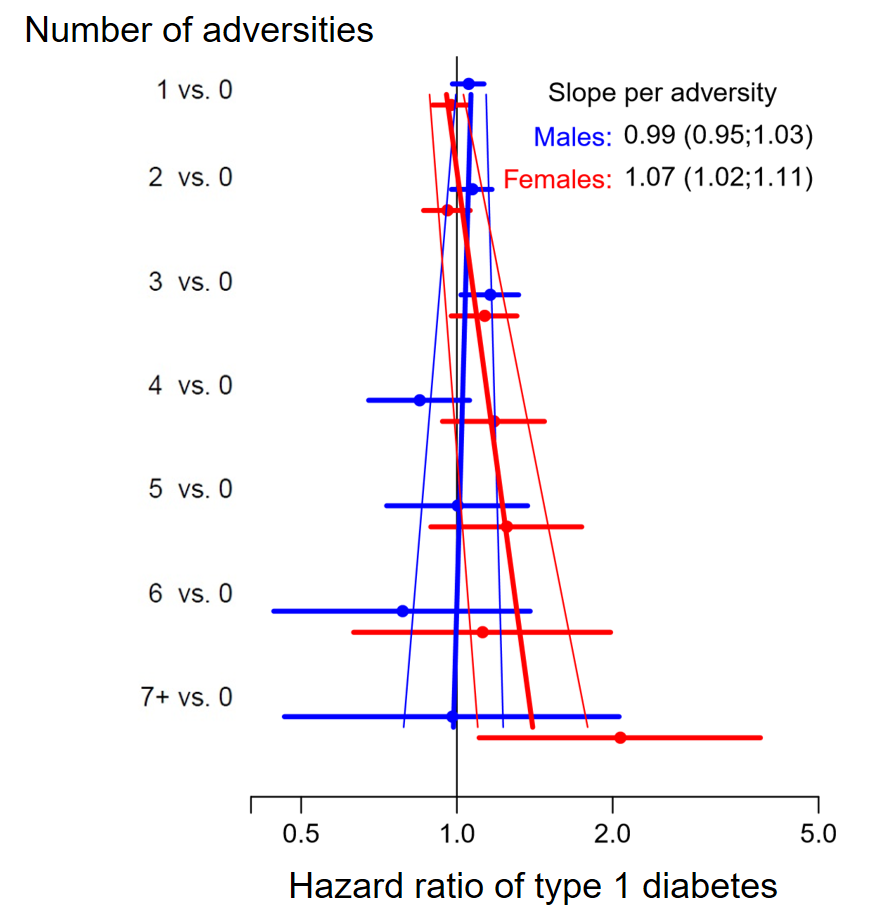Type 1 diabetes
Type 1 diabetes is an autoimmune illness in which the pancreas produces little to no insulin, which destabilises the body’s blood-sugar levels. This chronic condition usually presents in childhood or early adulthood, and it is both irreversible and incurable. Moreover, there is a lack of knowledge about the non-genetic risk factors for type 1 diabetes, but people with this condition and their relatives are often concerned that stressful life events or adverse circumstances may have contributed to them developing type 1 diabetes.
Using the DANLIFE cohort, and a multi-state model, we investigated whether an accumulation of childhood adversities affected the risk of developing type 1 diabetes. We found that an accumulation of childhood adversities had a quantitatively small effect on the risk of developing type 1 diabetes amongst females [adjusted hazard ratio (HR) per adversity increase: 1.07; 95% confidence interval (CI): 1.02–1.11], but not amongst males (adjusted HR per adversity increase: 0.99; 95% CI: 0.97–1.03). A small group (0.2%) of females who had been exposed to an extreme number (7+) of childhood adversities had a 2 times higher risk of developing type 1 diabetes compared to unexposed females (adjusted HR: 2.06; 95% CI: 1.10–3.86).
We conclude that experiencing childhood adversities generally has a negligible or no effect on the risk of developing type 1 diabetes, which may be reassuring to people who are concerned that personal trauma has contributed to them developing the condition. We found that a very small number of females who had experienced an unusually high degree of adversity may have an increased risk of developing type 1 diabetes, and this group needs further attention.

